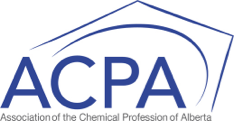Court Sandau
Court is the President and owner of Chemistry Matters Inc - a niche environmental consulting firm which specializes in environmental forensics, geoforensics, and biomonitoring services. In addition, Court is an Adjunct Professor in the Department of Civil Engineering at the University of Calgary. Because of Court’s extensive education and his application of on site, environmental chemistry practices, Court is regularly called upon to provide his expert witness testimony during litigation processes.
What are your current duties?
Every day is different. I’m actively involved in the business development of Chemistry Matters as well as each project we take on. I spend my time both at my home office analyzing data we’ve collected on site and in the field gathering samples for analysis. This work has taken me around the world and is often used in litigation disputes where companies have been accused of releasing contaminants into the environment. When I’m not working on behalf of our clients, I enjoy sharing what I’ve learned with students. I’ve been an Adjunct Professor with the University of Calgary since 2011 and it’s always a pleasure to work with students and to discuss all aspects of science.
What is your education?
I began my career in chemistry following my undergraduate degree in chemistry and environmental science at the University of Western Ontario. I pursued an opportunity to work with Dr. Ross Norstrom who worked for the National Wildlife Research Centre and completed my thesis for my graduate program from Carleton University. I now hold my Ph.D. in Chemistry with a specialty in analytical chemistry.
Why did you choose to study chemistry?
Actually it wasn’t my first plan. I had enrolled in the French Literature program at the University of Western Ontario. The entrance advisor encouraged me to switch to the Chemistry program. My best grades during high school had been in chemistry and once I saw that there would be a minor in environmental sciences, I had to agree that it looked like a fantastic opportunity. Following my undergrad, my family and I moved to Hull/Gatineau Quebec and I began the graduate program at Carleton University working with Dr. Ross Norstrom. If you’re considering a career in chemistry, play off your strengths. Get into the research you’re interested in and good at.
What was your first chemistry job? How did you get to where you are today?
My first chemistry job was amazing. I was hired immediately out of my graduate program by the Centers for Disease Control and Preventions (the CDC) in Atlanta. One project I was working on, alongside Dr. Norstrom, caught their attention. We were measuring metabolites in PCBs in human blood. There were only a handful of individuals worldwide who were looking at this data and I was one of them. Naturally, I took the position. It was a chemist’s playground with access to all kinds of instrumentation in the lab and opportunities to experiment and drive research. The key aspects of me getting my first job was having a thesis supervisor that let me present at international conferences as well as me wanting to get up and present at these conferences. I had to get up, to get noticed. I had to work to get myself in front of the individuals who could help propel my career.
How has being a P. Chem helped your career as a chemist in the province of Alberta?
It’s an interesting time right now to pursue chemistry in Alberta. The landscape of what we do is changing. When I was younger, I struggled to find work in Alberta - I really had to drive my own career even though I had worked for the CDC. Part of the reason for this change is that companies are only now to starting to understand the value chemists bring to an organization. We can work in a variety of fields ranging from healthcare and education to oil and gas or within private firms. The P. Chem designation provides a professional with a level of integrity that is gaining recognition in the workplace worldwide. It really is important to be a part of a profession that is recognized, that encourages professional development and that promotes a culture of legal and ethical responsibility.
What advice would you give a young chemist starting his or her career?
Find a good mentor! Find your passion within chemistry. I have been incredibly fortunate to work under the guidance of phenomenal scientists like Dr. Ross Norstrom or Dr. Don Patterson who was my boss and mentor at the CDC. Even now, I immerse myself in books and opportunities to learn from my peers and all individuals who promote the beauty and education of science. Get involved within the science community whenever you can and try to connect with individuals and companies who share your values and interests. The chemistry community is a tight knit group so reach out and connect with fellow chemists and scientists, collaborate and share. The network you build will improve your chances of true success. This is a generalization of chemists but we need to step out of our introverted personalities and communicate more with the public about the value we offer and the services we provide.
What careers can a chemist have?
A chemist is not just destined for a lab job. A chemist can contribute to almost every scientific field. As the central science, it is easy for a chemist to provide insight to both the biological/earthly sciences as well as the more theoretical sciences. Once you secure a position in a company you respect, be proud and confident in your chemistry training and speak up when something doesn't make sense to you. If the data doesn’t seem to make sense, it likely indicates that something has been overlooked.
